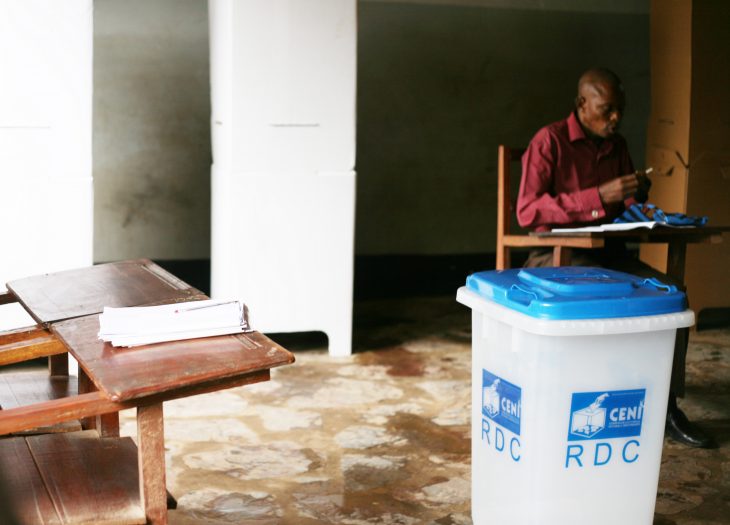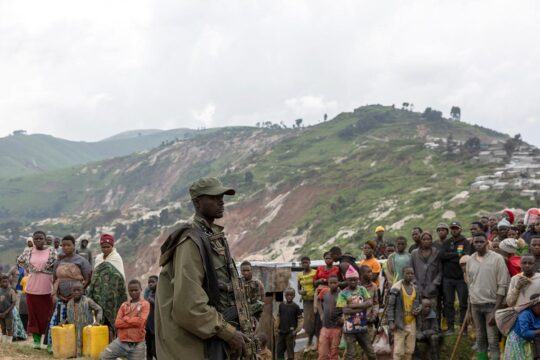The Harvard Humanitarian Initiative (HHI) has released the results of the first two polls out of a series of 10 polls to be conducted in eastern Democratic Republic of the Congo (DRC). The polls were carried out in December 2014 and between March and May 2015, and are the first in a series running from 2014-16 that provides reliable data and analysis on peace, security, justice and re-construction in the Democratic Republic of the Congo. The project is a joint initiative of the Harvard Humanitarian Initiative (HHI) and the United Nations Development Programme (UNDP), in collaboration with MONUSCO Civil Affairs. HHI is responsible for data collection, analysis, and reporting of the results in collaboration with partners at the Université Libre des Pays des Grands Lacs, Université Catholique de Bukavu, and Univer-sité de Bunia.
The polls build on the results of a 2013 baseline survey, published in 2014 and available in English and in French , of 5,166 randomly selected adults to provide results representative of the adult population in the provinces of North Kivu and South Kivu, and the district of Ituri, which assessed the population's perceptions, knowledge, and attitudes about peace, security and justice.
The second and most recent poll was conducted in March-May 2015 and published in June. 4,317 interviews were carried out with randomly selected adults in North Kivu, South Kivu and Ituri. The margin of sampling error is ±5 percentage points at the 95% confidence level. Key findings include the following:
-
There is broad support for recent military operations against Forces Démocratiques de Libération du Rwanda (FDLR), however support for the operations is lower in the regions that are most directly affected, potentially reflecting fears of militarization or FDLR reprisals.
-
The sense of security is stable except in the city of Beni (NK) and in Kabare (SK) and Mambasa (Ituri).
-
Perceptions of elected representatives are weak, however this does not affect people’s intentions to vote.
-
Illness and injury after rape are seen as a cause of exclusion of victims.
You can download a full report on poll #2 in French.
For the first poll, conducted in December and published in March 2015, a population survey was carried out among 1,547 randomly selected adults who were interviewed one-on-one in the cities of Goma, Bukavu, and Bunia, and the territoires of Nyiragongo, Rutshuru, and Masisi (Petit Nord). The margin of sampling error is ±5 percentage points at the 95% confidence level. The main findings are that:
-
After strong improvement since the 2013-14 baseline study, security remained stable in the territoires of the ‘Petit Nord’ but confidence in security actors declined
-
Incidence of crimes decreased, except in Bukavu. Incidence of sexual violence was unchanged.
-
Trust in justice actors improved, but challenges remained.
You can download the report on poll # 1 as a PDF in English and in French.
More information on HHI’s research in the Democratic Republic of the Congo can be found here .






